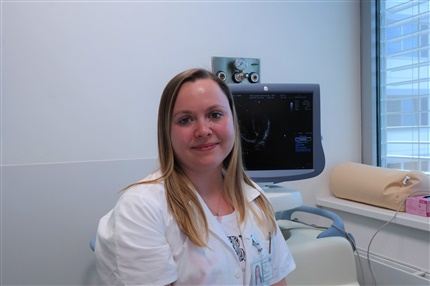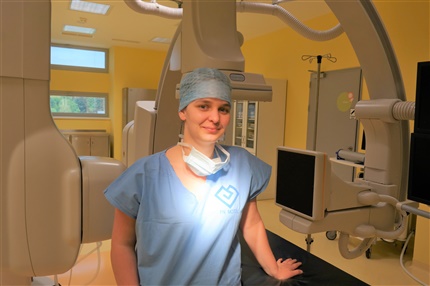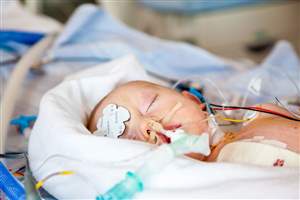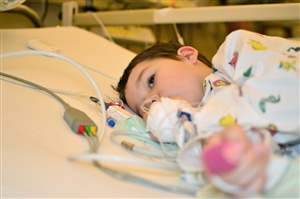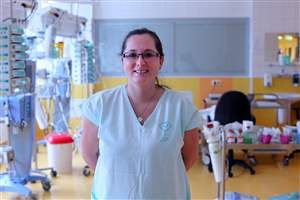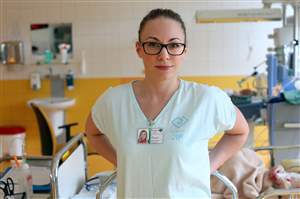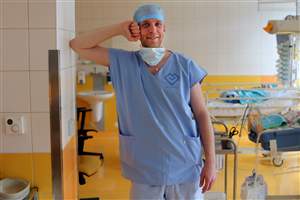A brief overview of the Children's Heart Center
Our specialized center is the only Czech comprehensive cardiovascular center for children and has nationwide scope. We are concerned mainly with the diagnosis and treatment of congenital cardiac defects in children, and we cooperate with other departments in the treatment of adult patients with congenital cardiac diseases; we also perform heart transplants.
Annually we perform over 400 operations and more than 300 catheterizations (about 2/3 are interventional). About 800 patients are hospitalized and we treat more than 5.000 outpatients. Yet the numbers are still increasing.
The specialized center regularly provides medical care for foreign patients through the Medevac Humanitarian Program and charities or humanitarian missions in Amman (Jordan) and Cambodia with sometimes a follow-up treatment of these patients at the Children´s Heart Center.
How will your detailed schedule look like? What type of surgeries, procedures, methods or treatment can you observe? Check what can you see by shadowing every member of the mentoring team.
Is this specialty placement ideal for you?
- Do you want to work with children patients in your future career? Are you responsible and emotionally stable as a person? This question is important, because we care for the youngest patients, who are enormously vulnerable and often in critical conditions. At the same time, there is nothing more satisfying than helping these newborns and kids to recover. Another advantage of our mentoring team is the great amount of international experience in their field and they are happy to share interesting insights in other world countries' healthcare systems with you.
- If you are interested in Cardiovascular surgery, Cardiology, Pediatrics, Nursing, or Gynecology & Obstetrics, this placement will suit you perfectly. Our mentoring team consists mainly of nurses, however, if you are uncertain about your desired profession, you will appreciate being a part of a well coordinated Childrens' Heart Center team consisting of both nurses and doctors, who will allow you to observe and learn from their work and share their knowledge and experience with you.
Let's take a closer look at the specialties…
In 2011, our state-of-the-art Children's Heart Center was moved into a newly reconstructed building and it consists of two modern operating theatres, bi-plane digital catheterization lab, electrophysiology lab, echocardiography lab, 12-bed ICU, and 18-bed cardiology department. We are also able to accommodate accompanying persons such as parents or chaperones in the cardiology ward or hospital dormitory.
We care for the growth and development of patients from prenatal age up to the age of 18 years who are suffering from congenital and acquired diseases of the heart and great vessels, including arrhythmias, and chronic cardiovascular dysfunction.
The center also takes part in the diagnosis and treatment of adults with congenital heart defects. We provide non-invasive and invasive diagnostics and medical treatment of heart diseases including prenatal diagnostics and therapy. Our specialists offer a full range of open-heart and close-heart cardiac surgeries for congenital and acquired heart diseases including those with the most complex anatomy. We also provide a wide spectrum of catheter interventions, such as valve and vessel dilations, septal defects and aberrant vessel closure and ablations of arrhythmogenic substrates. Pacemakers and implantable defibrillators are often used during our operations. A Preference for non-invasive diagnostic procedures (ECHO, MRI, CT) and primary corrections of the defects at an early age are the characteristic features of our center.
Patients from the operating rooms or CatLabs are received in our ICU. Sometimes our little patients are in such a condition that they require an extracorporeal support of circulation (ECMO) or another procedure called delayed sternal closure where, due to their condition, their chest remains open after the surgery. Our patients are often attached to artificial lung ventilation that helps them breath. We also conduct peritoneal dialysis. Our team members carefully monitor the patient´s life functions and administer medication.
We provide comprehensive care to help our patients recover after the operation as soon as possible. It includes skincare, milk nutrition, preparation of catheters, drains, blood sampling, peritroneal dialysis, and last, but not least, the psychological support. The foreign hospital environment can be very stressful not only for the patient but also for the accompanying persons, be it parent or chaperone that have the opportunity to stay in the hospital and close to the child. Therefore it is important to take care of them, too.
What helps us to do our job smoothly is the best technological equipment. Above all, we should mention the bipolar sciascopy device, ECMO device, 3D transesophageal echocardiography, three-dimensional electro anatomic mapping system of arrhythmias, or the high - tech cryoablation system.
We are proud of all our colleagues in the department, who internationally publish their articles in books and journals.
Our center also includes following specialized outpatient departments:
- Clinical cardiology
- Electrophysiology and cardiostimulation
- Prenatal cardiology
- Connective tissue disease
Who do we take care of?
We provide compendious surgical, catheter-intervention, and conservative treatment for children and adolescents with congenital heart disease, acquired disease of heart or major blood vessels, and possibly with stenosis of the lower airways. We also ensure comprehensive intensive care for patients suffering from congenital or acquired heart disease, including heart failure treatment, short- and long-term mechanical support of the circulation. We also provide a variety of pharmacological and non-pharmacological treatments of cardiac arrhythmias, including catheter ablation and implants, as well as the prenatal detection of congenital heart defects, counseling and treatment of fetal arrhythmias.
Since the center is the only one of its kind in the Czech Republic, we care for patients throughout the country so our patients aren’t just referred from departments within the University Hospital in Motol. As a high level specialized center we have already conducted several heart transplants in children.
When we diagnose severe pre-birth heart disease, the mother-to-be gives birth in the hospital at the Specialized Center of Obstetrics and Gynecology. Then the newborn is passed directly to us and we provide further care.
Our methods and procedures
Our coordinated team performs these procedures within the department:
- Recently, a new diagnostic method for autism spectrum disorders - Autism Diagnostic Observation Schedule (ADOS) was put into operation. Since 2012, the ADOS has been already routinely used at the clinic and a total of 153 patients were tested until the end of 2013.
- Program of long-term implantable heart assist device - the first patient was successfully treated for 7 months within the year 2014 and subsequently underwent transplant.
- The comprehensive therapy of eating disorders, in which the department has a nationwide significance, is being further developed. In 2013, the research on suicidal behavior and self-harm in patients with eating disorders (47 girls examined) took place at our department, subsidized by The Ministry of Health of the Czech Republic.
How does the usual schedule look like?
- Our specialized center is always busy and the team works on regular schedule - 12 hours shifts. Even in the night we need to constantly look after the patients and support them. What's more, the child patients need more attention, safe to say, there is always a lot to do. According to your mentor, you will know the exact schedule on Monday morning. You will shadow the professionals providing care for our little patients for at least 25 hours weekly.
If you are not sure whether this choice is suitable for you, don’t hesitate to contact us. We will discuss your experience and motivation and come up with the best solution for you.



